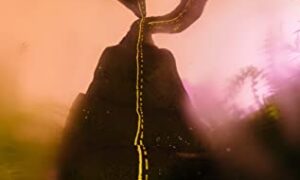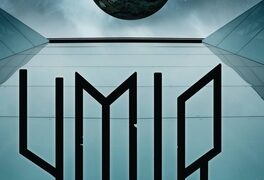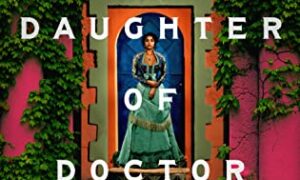 Down in the Hole: The unWired World of H.B. Ogden by Joy DeLyria, Sean Michael Robinson
Down in the Hole: The unWired World of H.B. Ogden by Joy DeLyria, Sean Michael Robinson
My rating: 5/5 cats





day-before musings:
we just got this in today. how did i not know this existed online??? even just flipping through casually, i am already in love. sorry, library books, this is my next read.
review: for now.
i have no idea why this book was made. but i am so grateful. my suspicion is, and i am no television scholar, so this is probably just wild speculation, but just as everyone was lauding Deadwood as being “shakespearian” when it came out, i assume some savvy critic saw the parallels between The Wire and victorian literature, with its emphasis on the social condition, the striving of the lower classes, the failures of institutions to address the needs of the people, and the impact of the industrial revolution upon the lives of the workers and the greed of the wealthy.
so this book could have been born.
it represents itself as a found text written by a contemporary, and less-successful rival, of dickens, and offers up portions of the h.b. ogden’s (groan) serialized five-part novel, The Wire. the rest of the book is lit-crit of the text itself, information about its critical reception, and a smattering of illustrations which are my favorite part.
the illustrator of this work, baxter black, is also discussed by a modern critic:
Today’s storytelling lacks this essential element of effective illustration. For one thing, we would not allow our cast to be represented by the “others” in our society, whom Black renders so lovingly. Black gave us reality, and he made it beautiful. The standards of illustrations today are pitifully low, and certainly are no longer concerned with reality, while our fiction demands their inverse, a perverse masquerade of fairy tale plotting nested within a framework of “gritty realism” that is all but real. Movies, television, and the internet have all morphed our expectations, twisted and changed our visions, until we only wish to see the critic John Ruskin’s ideal: a pristine, white, purer version of ourselves.

the book does take some liberties, for example shuffling The Great Gatsby around in time so it is now “a mock epic which appeared in the mid-eighteenth century,” simply to be able to include d’angelo barksdale’s recognition of his own life through gatsby:
“It’s like you can change up, right, you can say you somebody new, you can give yourself a whole new story, but what came first is who you really are, and what happened before is what really happened. And it don’t matter that some fool say he different, ’cause the only thing that make you different is what you really do, or what you really go through.”
which, of course, applies to so many of the characters.
there is also no reference at all to race. although the illustrations clearly depict the race of characters, and although in a victorian novel the emphasis on race would not manifest itself in the same way; it would be about class rather than race, considering what a major factor race plays in The Wire, it seems an odd omission, also, no mention of homosexuality. i understand the limitations of the mirage we are working with, but there has to be a way to dance around it, right? a mention, at the very least?
at least this scene is rendered faithfully
and oh, omar. my beloved.
the character of omar is likened both to brontë’s heathcliff, and byron’s don juan, which, invoking my two favorites as it does, made me glow. i disagree somewhat, as omar is never as blindly ruthless as heathcliff nor as sensual as don juan, but as a byronic hero, living life on his own terms and becoming this solitary mythical figure, i take the point gladly.
the courtroom scene in this book is great, and manages to slyly be more than it is, as so many parts of the book do, pointing to the larger problems the television show faced.
The street often tells the truth, for it tells stories, which form the frame of reality in a way dry, inflexible law cannot. The law admits lies, for it is concerned only with fact, which can be falsified; the conviction of a real story, its meaning, cased deep down, cannot be faked. And yet the accoutrement of story—its trappings—all of it is fiction, and thus inadmissible in court. Procedure will not admit a dressing up, though judge, jury, and justice are themselves a kind of play-acting; wigs, robes, and bands an obfuscation of the truth. There was a reason why, among all the gentlemen attending, Omar Little only made one small concession to pomp and circumstance, and why he did so defiantly, in the careless tying of a cravat.
Law, Mr. McNulty meant to say, was a lie, for on the streets where there was no justice, there was in its place truth. For once, he was glad of the fact.
and thank you, book, for pointing out the connection i never made between cutty and colvin; that their actions were exactly the same—giving violence, giving crime its space, providing an outlet that may otherwise have spread out with more unsavory results. obviously, cutty’s experiment was a healthier one, but i just never made the connection. duh.
and the following passage from the cutty chapter again speaks to the larger idea of The Wire, and could really stand as a summary of all that The Wire is.
…there is a satisfaction in having persevered and in having survived when all the rest of the world goes up in blazes of glory and despair. There is grim completion in having fought a fight, fought it fair, and finished it, even if one knew the outcome was ultimate defeat.
my only criticism, and it is more of a request than a complaint—i want the whole text. the samplings are so tantalizing, that i would gladly read the entire serial, giggling all the way.
To consume this story in small bits doled out over an extended time is to view a pointillist painting by looking at the dots…to experience the story in its entirety, without breaks between sections, would be exhausting; one would perhaps miss the essence of what makes it great: the slow build of detail, the gradual and yet inevitable churning of the great wheel of the world.
i would take that risk.
and to drop the act for a moment, and to talk about the television show. The Wire was, quite simply, the best show ever aired. and it never got the big awards, but any intelligent person who has ever lowered themselves enough to watch television in the first place knows this. yes, it is bleak, yes, you have to pay attention, yes, there are a ton of characters. things that happen in the first season may not come into play until the finale, and the interconnectedness of it all is so delicate and impressive. it is fictionalized journalism, it is the streets in the absence of justice, it is the real fucking deal.
and look at all the awards The Wire never won:
http://en.wikipedia.org/wiki/List_of_…
fuck you, awards.
i meant to write a much better and more detailed review for this, but it just got away from me. maybe i will return to it to polish it up, but for now, this is what i have.
AND!
since funko is apparently unwilling to include The Wire in their pop! vinyl line, i have resorted to purchasing the dolls of wire actors in non-wire roles and pretending i have a collection of wire toys, and i’ve even managed to more or less line them up with appropriate seasons.
life is all compromise and workarounds.
read my book reviews on goodreads













